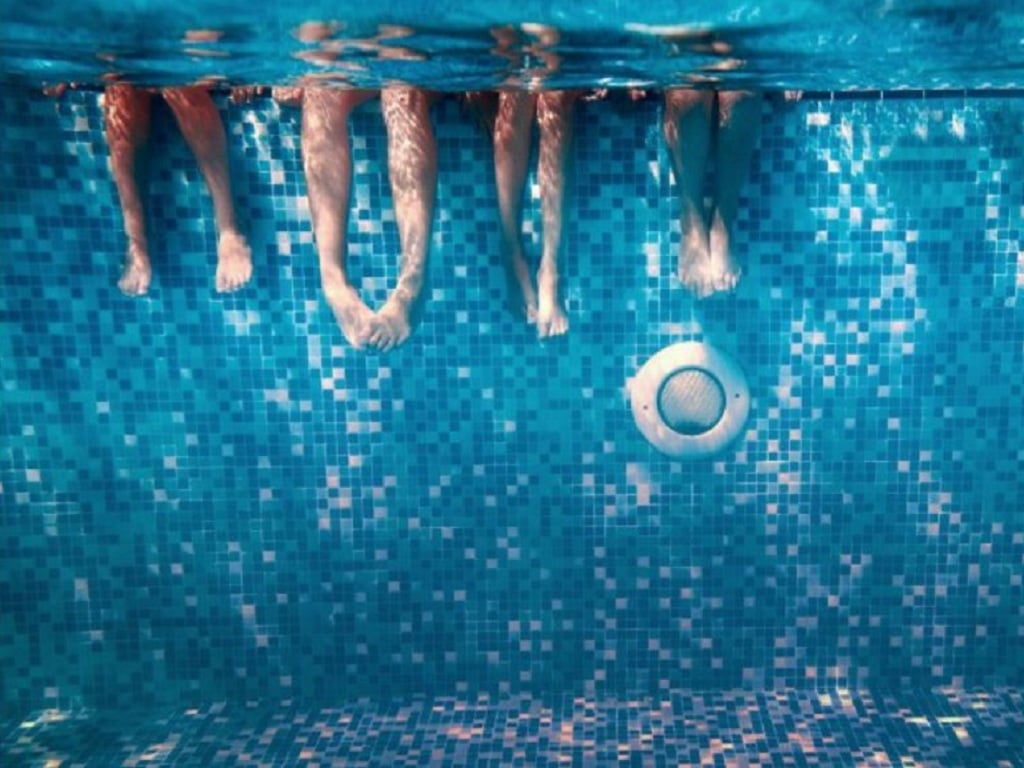Chlorine is a compound commonly added to swimming pools to treat water, killing bacteria and harmful agents. For some people, chlorine in swimming pools can cause skin and eye irritation. For those who dye their hair blonde, in some cases, the hair color can turn slightly blue, according to the Huffington Post (USA).

Experts recommend that if the pool has a strong odor, it is best not to swim.
However, this is unavoidable because swimming pools are required to be disinfected with chlorine. Furthermore, the smell you are smelling in your pool is not actually caused by the chlorine in the water. In fact, chlorine usually does not produce such a strong smell.
The reason for the strong pool odor is chloramine. This is created when chlorine reacts with sweat, natural body oils, and urine in the pool. In other words, the more smelly the pool is, the more dirt is in it.
For example, with urine, the main component of urine is ammonia. The chemical formula for ammonia is NH 3 and of course there is hydrogen in it. The chlorine in the pool water will react with the hydrogen in the ammonia. The number of hydrogen ions that react determines what is produced.
If one ion is present, it creates monochloramine, two ions create dichloramine, and three ions create trichloramine. According to the American Chemistry Council, monochloramine is sometimes added to swimming pools as a disinfectant, while dichloramine and trichloramine are entirely produced by the interaction of chlorine with ammonia in urine.
If you enter the pool and smell a strong odor, it is time to add more chlorine to disinfect the pool. The best option is to turn around and come back at a later time.
The U.S. Council on Water Quality and Health recommends that people avoid swimming in pools with strong odors, especially if they are emanating from the pool, indoors and outdoors. The more urine there is in the pool, the more chlorine and ammonia interact, and the stronger the odor.
Not only that, when a large amount of chlorine in the pool interacts with ammonia, the ability to kill bacteria in the water will decrease, thereby increasing the risk of diarrhea, ear infections and some other skin infections, according to Huffington Post.
Source link



![[Photo] Closing of the 11th Conference of the 13th Central Committee of the Communist Party of Vietnam](https://vstatic.vietnam.vn/vietnam/resource/IMAGE/2025/4/12/114b57fe6e9b4814a5ddfacf6dfe5b7f)


























![[Photo] Overcoming all difficulties, speeding up construction progress of Hoa Binh Hydropower Plant Expansion Project](https://vstatic.vietnam.vn/vietnam/resource/IMAGE/2025/4/12/bff04b551e98484c84d74c8faa3526e0)




























































Comment (0)